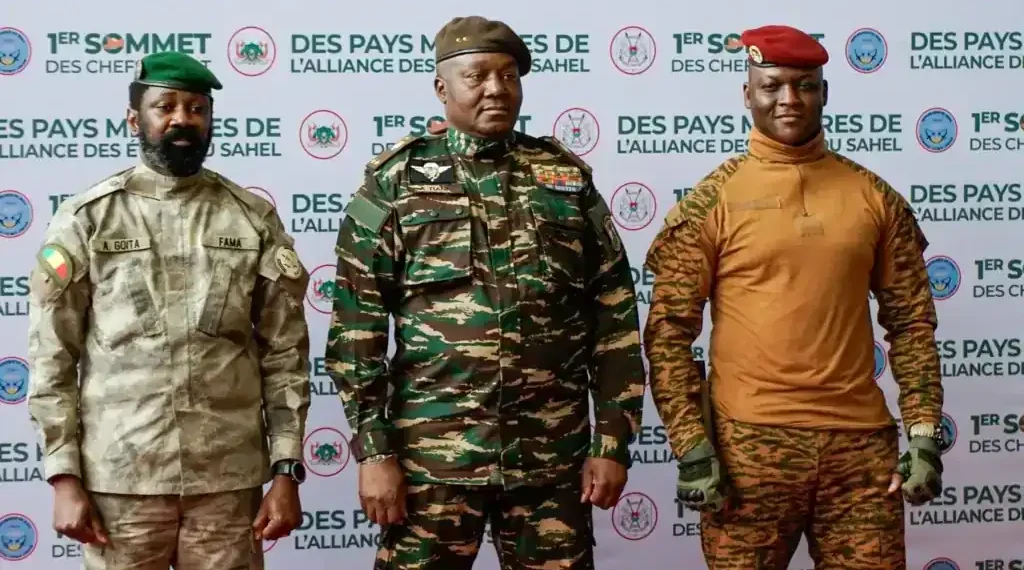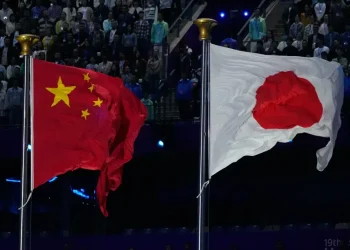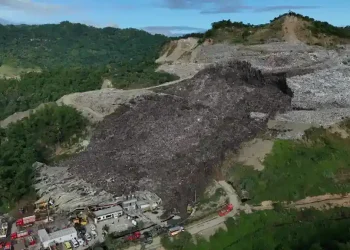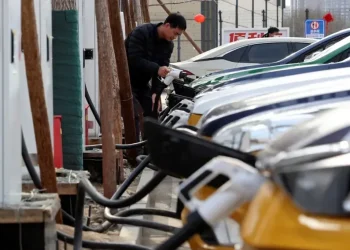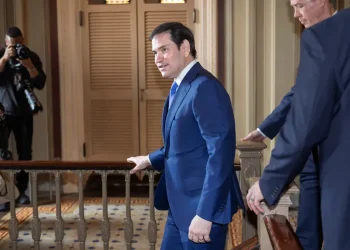West African States Challenge ICC Authority
Published: September-23-2025, 19:30 EDT
Burkina Faso, Mali, and Niger declared on Monday that they will withdraw from the International Criminal Court (ICC), calling the institution an “instrument of neo-colonialist repression.” The coordinated move by the three military-led governments marks a significant rejection of international judicial oversight in a region already fraught with instability and violence.
In a joint statement, the leaders announced they would no longer recognize the authority of the Hague-based tribunal, arguing that the ICC has failed to prosecute war crimes, genocide, and crimes against humanity in a fair or balanced manner. Their decision echoes long-standing criticism from several African leaders who view the court as disproportionately targeting the continent.
Criticism of ICC and Allegations of Bias
Since its founding in 2002, the ICC has pursued cases involving genocide, crimes against humanity, war crimes, and aggression. However, out of 33 cases launched since its inception, nearly all have involved African countries. This record has fueled accusations of selective justice and bias.
Rwanda’s President Paul Kagame has previously accused the court of harboring an anti-African agenda, and the Sahel states echoed that view in their joint statement. The three governments pledged to develop “indigenous mechanisms for the consolidation of peace and justice,” suggesting they will replace international oversight with regional judicial structures.
Process of Withdrawal and Regional Context
Under ICC rules, a country’s withdrawal becomes effective one year after official notification is submitted to the United Nations. Until then, the ICC retains jurisdiction over crimes committed in that period.
The decision comes amid wider political shifts in the Sahel. Burkina Faso, Mali, and Niger — all currently under military rule following coups between 2020 and 2023 — formed the Confederation of Sahel States earlier this year. The bloc represents their growing alignment in security and foreign policy matters.
In January, they also announced their coordinated withdrawal from the Economic Community of West African States (ECOWAS), rejecting demands to restore civilian democratic governance.
Accusations of Abuses Amid Rising Violence
The military-led governments in the Sahel face allegations of committing abuses against civilians during counterinsurgency operations. Violence in the region has escalated in recent years, fueled by jihadist groups linked to al-Qaeda and the Islamic State. Human rights organizations have warned that abandoning international judicial mechanisms could further erode accountability in a region already struggling with instability.
Nevertheless, the three states insist that international institutions like the ICC have failed to protect their populations or deliver justice for crimes committed against their people.
Russia’s Growing Influence in the Sahel
The withdrawal also highlights the shifting geopolitical landscape in West Africa. Burkina Faso, Mali, and Niger have increasingly distanced themselves from Western powers, particularly France, the former colonial authority. In recent years, they have cultivated stronger ties with Russia, which has provided military and political support.
Notably, Russia itself has been at odds with the ICC. In 2023, the court issued an arrest warrant for President Vladimir Putin over alleged war crimes in Ukraine, a move strongly rejected by Moscow. The alignment of the three Sahel countries with Russia underscores their shared resistance to Western-led institutions.
Global Implications
The departure of Burkina Faso, Mali, and Niger from the ICC underscores a broader crisis of legitimacy for international justice systems. If their withdrawals proceed, it may embolden other countries to challenge or disengage from the court, weakening its global reach.
For the Sahel states, the move is framed as an assertion of sovereignty and regional self-determination. For international observers, however, it raises concerns about accountability for war crimes and crimes against humanity in a region where civilian populations remain highly vulnerable.
Conclusion
The decision by Burkina Faso, Mali, and Niger to exit the International Criminal Court represents both a symbolic and practical challenge to international justice. While the three governments argue they are asserting independence and creating local systems of accountability, the move also highlights their deepening isolation from Western partners and their closer ties to Russia. As violence and instability continue to plague the Sahel, the absence of ICC oversight could have far-reaching consequences for justice, security, and human rights.
This article was rewritten by JournosNews.com based on verified reporting from trusted sources. The content has been independently reviewed, fact-checked, and edited for accuracy, neutrality, tone, and global readability in accordance with Google News and AdSense standards.
All opinions, quotes, or statements from contributors, experts, or sourced organizations do not necessarily reflect the views of JournosNews.com. JournosNews.com maintains full editorial independence from any external funders, sponsors, or organizations.
Stay informed with JournosNews.com — your trusted source for verified global reporting and in-depth analysis. Follow us on Google News, BlueSky, and X for real-time updates.
